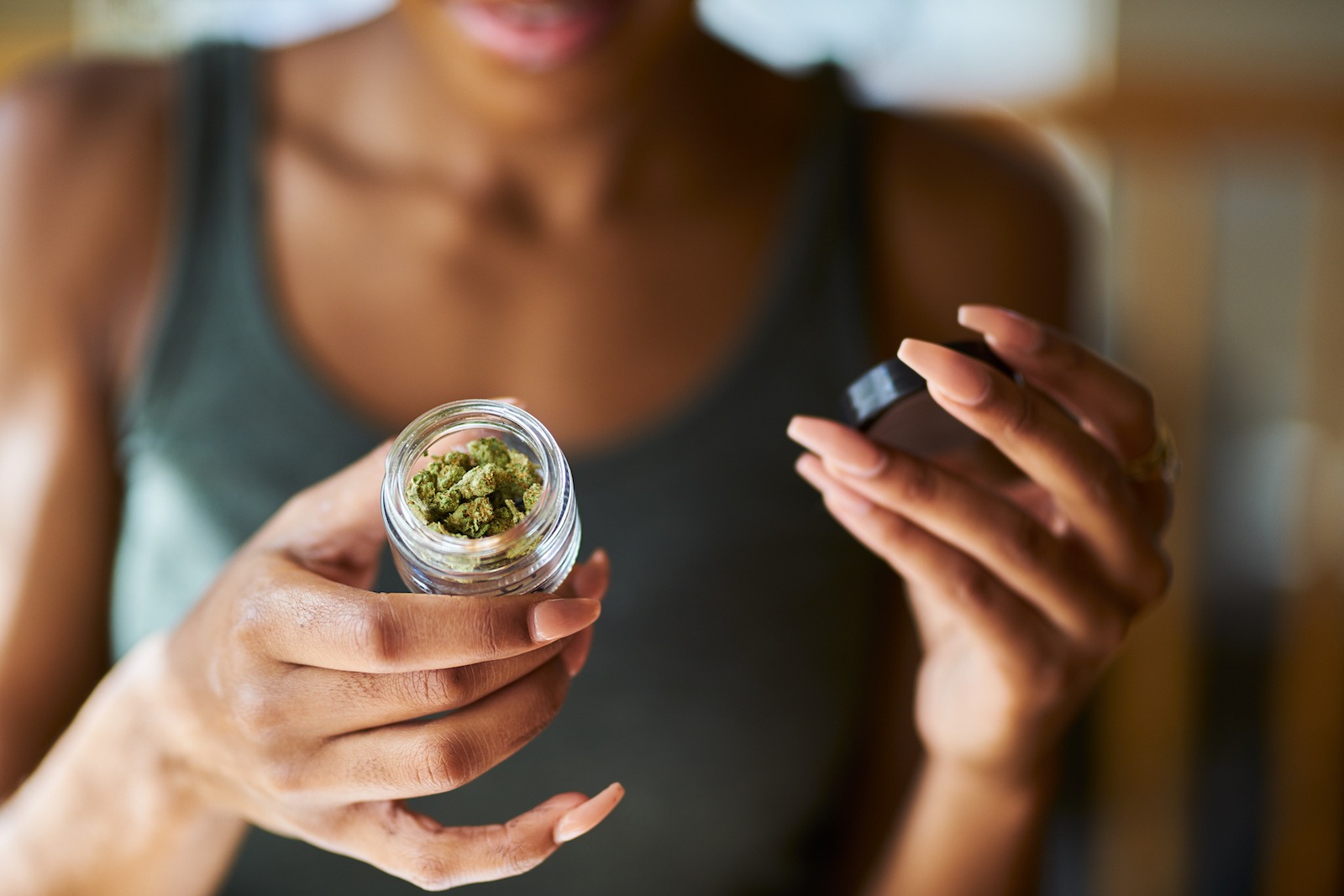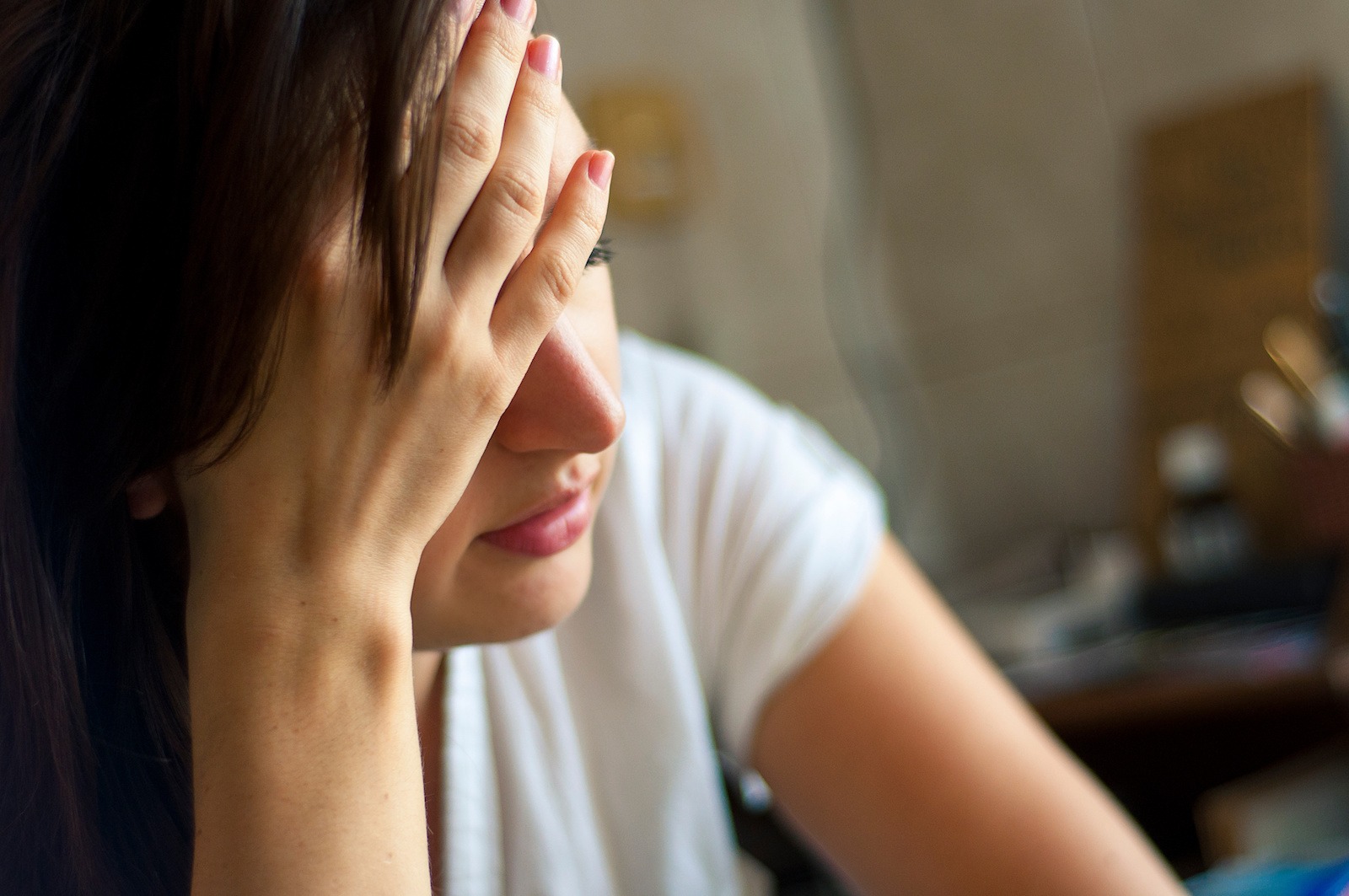Addiction | 6 min read
The Side-Effects & Risks Dried Weed Has On The Brain And Body
Medically Reviewed By

On August 26, 2022
Written By
On August 20, 2022

Most people know at least a little bit about weed these days. It’s one of the most commonly used drugs, right after alcohol and nicotine, and roughly 17.9% of people in the United States report using cannabis in 2020.[1]
With more states legalizing or partially legalizing cannabis use, more people are using weed and accepting weed use as normal.
That means there are also many more weed-based products hitting the market. It’s not just that more weed and more different strains of weed available. Edibles, tinctures, and dried weed are all become more common products.
However, anyone interested in using weed and products like dried weed needs to understand how weed interacts with your brain and body, the side effects you can expect from the drug, and possible signs of addiction.
We’ll also talk about how you can identify signs of addiction in yourself and others and treatment options if you think you’re dealing with an addiction to weed.
If you want to learn more about dried weed and weed products, you’re in the right place.
What Dried Weed Does To The Brain And Body
Most of the weed people use is dried weed, also called cured weed. This is the kind that’s often sold in dispensaries in places where weed is legal and on the street in places it’s not legal.
The differences between fresh and dried weed are more about how each version is used. Fresh weed, for instance, has too much moisture to smoke easily, which means that most people don’t use it that way.
Instead, fresh weed is often used to create other products, from edibles to tinctures, salves, and bath products.
Dried weed, however, can be used in all the same ways as fresh weed, although with variable results depending on the strain, how the weed buds were cured, and what methods are used to prepare the finished product.
Most importantly for most weed users, dried weed is easier to smoke, and smoking is one of the fastest and most potent ways to get high on the drug.
Understanding all of that is important to understand the many things weed can do to your brain and body. How weed impacts you depends on how you use it and the concentration of different chemicals called cannabinoids in the weed. THC and CBD are the two most important cannabinoids you should know about. Though other cannabinoids have some effects on your body, they’re less impactful and haven’t been studied as much.
THC is the primary chemical that gets you high when ingested. It can also be used to control pain.
CBD doesn’t get you a similar high, but users may appreciate its calming effects. CBD is also thought to help control pain.
People who use medical marijuana products may also be using weed because it can help stimulate your appetite and make it easier to eat. The main reason for using medical marijuana, however, is that fresh and dried weed can be used to control pain.[2]
In your brain and body, weed use has a range of effects. Every strain of weed is a little different, and the way people respond to the drug is also different, but here are some of the effects you can expect from dried weed:
- Euphoria/High feeling
- Pain relief
- Relaxation
- Calm
- Lowered inhibitions
However, while the effects of dried weed can feel good and may have benefits in some cases, there are also side effects to using any drug, and dried weed is no exception.
What Are The Side Effects Of Dried Weed?
Before you decide whether you will use weed, it’s important to understand the side effects of the drug and that weed use can have both short-term and long-term side effects.
The severity of side effects varies from person to person, and also with how much weed you use and how often you use it. The more weed you use, and the more often you use it, the worse your side effects are likely.
Different people also have different reactions to different strains of weed. So, whenever you try a new kind of dried weed, you may have slightly different side effects.
Here are some of the most common side effects of dried weed:[3]
- Dizziness
- Headache
- Anxiety
- Paranoia
- Increased appetite
- Impaired movement
- Impaired memory and cognition
- Psychosis (rare, but more likely with high potency weed)
Over time, some of those temporary side effects may turn into long-term side effects, including:
- Psychosis/Schizophrenia
- Impaired memory
- Impaired cognition
- Anxiety
- Depression
These symptoms are relatively rare and may not be severe, but they are one of the risks of regular long-term use of dried weed and other weed products.
Every time you smoke or use other weed products, you should expect at least some side effects from weed. You might not have the same effects all the time, and you might notice that some strains are more effective and have fewer side effects.
That said, even if a strain has minimal side effects, you can get more significant side effects over time.
Can You Get Addicted To Dried Weed? What Are The Signs Of An Addiction?
Yes, you can get addicted to weed. Addiction is rarer with weed than with other illicit drugs, but it’s still possible.
The good news is that you can’t overdose on weed, though you can get higher than you intended and may be distressed by your symptoms.
Additionally, chemical dependence on weed is very rare. Most people don’t develop dependence but can develop a psychological addiction to the drug.
Psychological addiction is when you feel like you need a drug or don’t feel like you can handle certain situations without it.
It’s important to remember, especially for people who use medical marijuana, that conditions like chronic pain can sometimes mirror some symptoms of addiction. If you use weed to control difficult or distressing symptoms, it may make it both easier to develop an addiction and more likely to act like you have an addiction even when you don’t.
Suppose you use medical marijuana and are worried about addiction. In that case, it’s a good idea to talk to your primary care doctor to see if there are other treatment options and to weigh the risks and benefits of a potential addiction, given your other conditions and the reasons you’ve been taking medical marijuana.
Outside of those conditions, however, it’s important to pay attention to the warning signs of addiction and to monitor yourself and any loved ones who use dried weed for potential signs and symptoms of psychological addiction.
- You need to use more and more weed to get the same effects as before.
- You worry about running out of weed.
- You want to use weed even when it’s inappropriate or gets in the way.
- Your side effects are worsening, but that doesn’t change your desire to have more.
- You reach for more weed to handle the side effects of weed.
- You’re dealing with hallucinations but don’t want to stop using weed.
- You feel like you need to use weed right away in the morning, without a medical reason for your use.
- You’re moody and irritable, especially between doses.
- You’ve noticed you’re more anxious.
- Your insomnia is getting worse.
- You’re starting to get more intense cravings for weed while still high from your previous dose.
How To Get Help For An Addiction To Dried Weed
If you think you or a loved one are addicted to dried weed, there are options to help you. The good news is that since there isn’t much risk of chemical dependence on weed, you don’t have to deal with the physical side effects of withdrawal.
However, that doesn’t mean that overcoming a dried weed addiction is easy. Likely, you or an addicted loved one will need extra support to help deal with your addiction. In addition, you’ll need people helping you, including with simple basics like ensuring you’re eating and drinking enough.
If you’ve had problems with substance use and addiction before, have been using weed a long time, or have a particularly stubborn addiction, it might be a good idea to work with a professional treatment center to help identify the causes of the addiction and good coping mechanisms that can help you deal with life without weed.
If you’re serious about overcoming an addiction to dried weed, and want extra help and support along the way, Ascendant NY treatment center can help you.
Treatment programs give you more time to focus on your recovery and what you need to get out of it. They can also allow you to talk to and learn from others recovering from substance use disorders and give back by helping others.
You’ll also have a chance to work with professionals who understand addiction and can help you understand why you’re dealing with addiction and what techniques you can use to help you overcome and live a healthier, happier life in the future.
Reach out to us to learn more about your options, our treatment programs, and what you can expect during intake and treatment.
Ascendant New York Editorial Guidelines
Here at Ascendant New York, we understand the importance of having access to accurate medical information you can trust, especially when you or a loved one is suffering from addiction. Find out more on our policy.
- SAMHSA, Center for Behavioral Health Statistics and Quality. (n.d.). Key Substance Use and Mental Health Indicators in the United States: Results from the 2020 National Survey on Drug Use and Health. https://www.samhsa.gov/data/sites/default/files/reports/rpt35319/2020NSDUHFFR102121.htm
- Grinspoon P. Medical marijuana. Harvard Health. Published April 10, 2020. Accessed August 18, 2022. https://www.health.harvard.edu/blog/medical-marijuana-2018011513085
- National Institute on Drug Abuse. Cannabis (Marijuana) DrugFacts. National Institute on Drug Abuse. Published December 24, 2019. Accessed August 18, 2022. https://nida.nih.gov/publications/drugfacts/cannabis-marijuana





